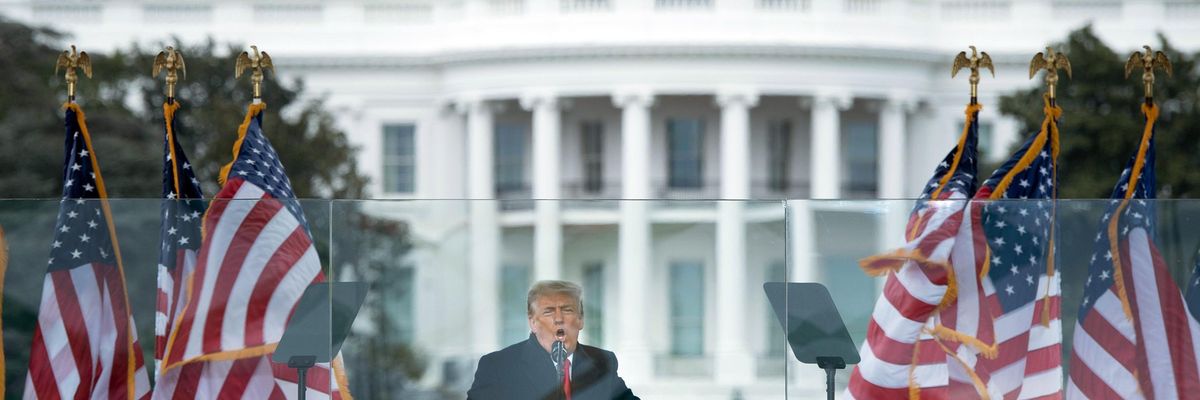The U.S. Department of Justice said Thursday that there are limits to a president's immunity from lawsuits filed over their performing of official duties—namely, that immunity does not extend to allegations that former President Donald Trump incited violence leading up to the January 6, 2021 attack on the U.S. Capitol.
The DOJ has typically backed Trump's claim that he is immune from civil lawsuits based on his "speech on matters of public concern," but government lawyers said that claims from 11 lawmakers and two Capitol Police officers regarding the danger they were placed in during the riot should be able to move forward in court without running up against that immunity.
Trump has attempted to fight those lawsuits with "only a single, categorical argument: A president is always immune from any civil suits based on his 'speech on matters of public concern'... even if that speech also constitutes incitement to imminent private violence," said the DOJ.
"The United States respectfully submits that the court should reject that categorical argument," continued the government.
Trump has appealed a lower court ruling that rejected his claim of immunity, with the court arguing that the former president's attempt to "secure or perpetuate incumbency" by inciting his supporters to try to stop the certification of the 2020 election was not part of his official duties as president.
The DOJ
backed Trump's claim of immunity when
E. Jean Carroll, who has accused the former president of raping her in the 1990s, sued him for defamation. The former president had responded to reporters' questions about the allegations by saying, "It never happened" and "She's not my type"—remarks that government lawyers said were not "appropriate" but did qualify as fulfilling his responsibility "to be responsive to the media and public."
In the case of January 6, the department said, "such incitement of imminent private violence would not be within the outer perimeter of the office of the president of the United States."
In a hearing before the U.S. District Court of Appeals for the D.C. Circuit in December, Trump attorney Jesse Binnall claimed presidential immunity should apply to the January 6 case because Trump was using the "bully pulpit" when he urged his supporters to march to the U.S. Capitol, where they then breached the building.
Binnall said Trump couldn't be sued even if he told his followers to "burn Congress down."
The DOJ noted that it was not taking a position "regarding the potential criminal liability of any person for the events of January 6, 2021," including Trump.
Antonio Arellano, vice president of communications for NextGen America, expressed hope that the department's view on Trump's immunity will bring him closer to facing accountability for his actions on January 6.
"Trump must face justice," he said.
